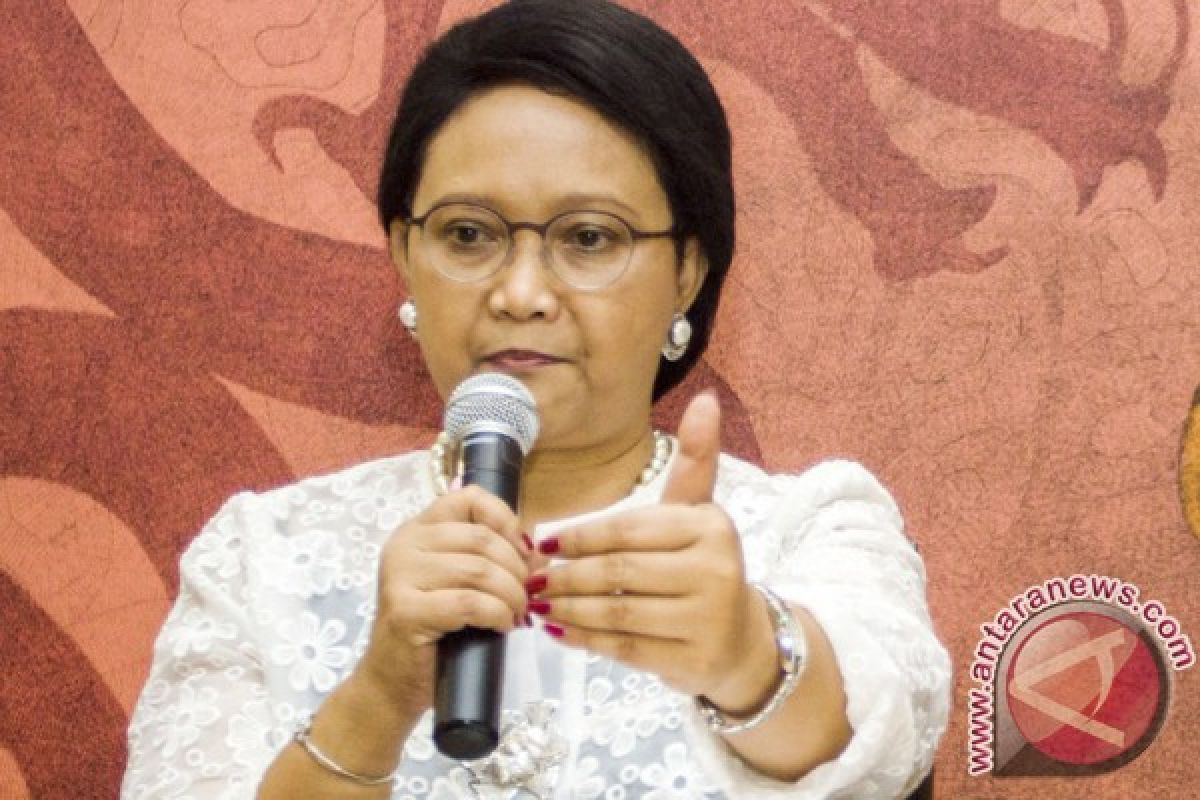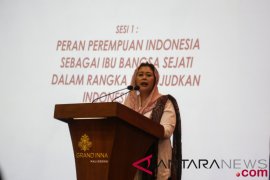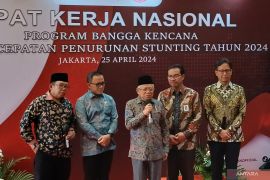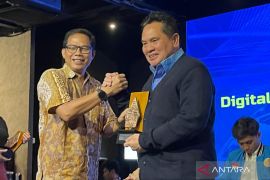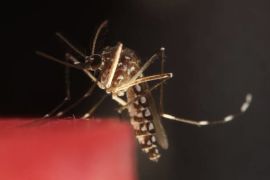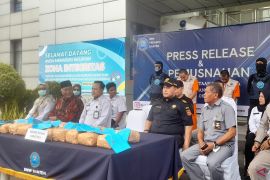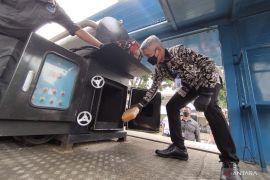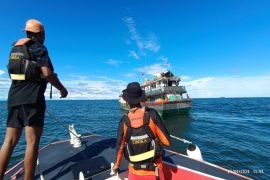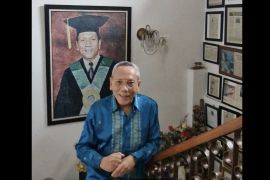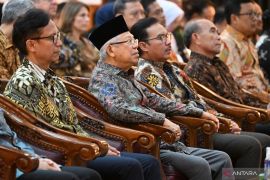Hence, the empowerment of women became one of the main issues discussed recently at the Women Foreign Ministers` Meeting in Montreal, Canada.
The issue of women`s empowerment discussed at the meeting concerned political participation, women`s leadership, strengthening democracy, world peace and international security, and eliminating gender-based violence.
Foreign Affairs Minister Retno Marsudi remarked at the Women Foreign Ministers` Meeting that increasing the role of women in deradicalization programs is very useful in responding to the phenomenon of the involvement of women and children in acts of terrorism that have been rife in recent times.
The first Women`s Ministerial Meeting was attended by Foreign Ministers from 15 countries, namely Andorra, Bulgaria, Costa Rica, Ghana, Guatemala, Indonesia, Canada, Kenya, Namibia, Norway, Panama, Saint Lucia, South Africa, Sweden and the European Union. Also present was the Japanese foreign minister as an invited guest.
During the meeting, the Indonesian foreign affairs minister also called on the international community and UN member states to encourage the participation of women in efforts to realize world peace, including combating terrorism and radicalism.
"As part of the UN peace mission, women have an edge in terms of persuasive abilities, acceptance by local communities, as well as protection for civilians from sexual violence and gender-based violence," Minister Marsudi remarked.
Indonesia is currently one of the largest contributors to the UN peacekeeping force, with some 3,500 personnel of which 111 are women.
To encourage increased participation of women, the Indonesian government had proposed the establishment of a special UN task force that oversees the dispatch of female personnel in peace missions.
In addition, the Indonesian government had proposed the existence of a peacekeeping unit, with only female personnel, to be assigned to conflict areas where vulnerable groups comprise women and children.
At the national level, the Indonesian government also continues to encourage the preparation of female personnel in peacekeeping missions. This was done by incorporating a gender perspective in the training curriculum for the Peace Maintenance Mission Training Center in Sentul, Bogor.
At the meeting initiated by the Canadian foreign minister and the European Union, the Indonesian foreign minister also encouraged strengthening global cooperation to combat acts of terrorism, including through increasing the role of women in deradicalization programs.
Earlier at the General Assembly of International Council of Women (ICW) and the National Meeting of 1,000 Indonesian Women`s Organizations in Yogyakarta, Wahid Institute Director Yenny Wahid emphasized the importance of empowering women to prevent radicalism and terrorism.
She referred to the suicide bombing case in Surabaya, East Java, in May 2018 which involved a woman and a mother as a suicide bomber.
According to Yenny, women must be empowered, so they can be strong enough to reject such false doctrines. She argued that everyone, both men and women, have their own responsibility for their deeds and sins.
"According to any religion, our sin is our own responsibility. The parents have a responsibility to educate their children, but once the children turn adult, they are responsible for their own sins. It is a pity if parents whose children are corruptors or criminals should be responsible for their children`s sins," said the daughter of late President Abdurrahman Wahid.
Therefore, Yenny called on all women organizations members to participate in empowering women by providing them with education, knowledge and ideas so as to make them able to reject any doctrine of radicalism, including that on efforts to force women to commit acts of radicalism.
Based on the Wahid Institute`s research, it is known that Indonesian women are more tolerant than men so they are better examples for children. They can educate their children and instill values of tolerance.
"When women have a chance to educate their children to be tolerant, then that is the answer to the question of how to avoid radicalization," she said.
In the meantime, ICW President Kim Jung Sook remarked that in the past three years, the ICW has been working hard to implement the big theme to change the society by empowering women, set out at the 34th General Session of ICW in Turkey.
According to Sook, the ability of women to change the world was strongly influenced by their basic characteristics of being compassionate but also having a strong leadership spirit.
Now is the right time to realize the women`s empowerment that can be initiated in the social, cultural, and educational fields.
In addition, women were also seeking equality in terms of numbers and strengths in all fields, including economics and politics.
Currently, only 17 countries are led by women and merely a few women can hold important positions in large companies and industries, she noted.
Sook said, in the Middle East, the number of women holding strategic positions in industry and large companies reaches some 3.9 percent; Latin America, around 6.4 percent; Asia Pacific, around nine percent; and quite large numbers of around 20 percent and 19 percent are found in Europe and the United States respectively.
"In my own country, Korea, the number of women in strategic positions in new companies and industries is around two percent. It contrasts with conditions in other countries," Sook pointed out.
In addition to playing a role in large industries, women also have a task to increase the family`s gross domestic income.
Editing by Eliswan
Reporter: Otniel Tamindael
Editor: Heru Purwanto
Copyright © ANTARA 2018
